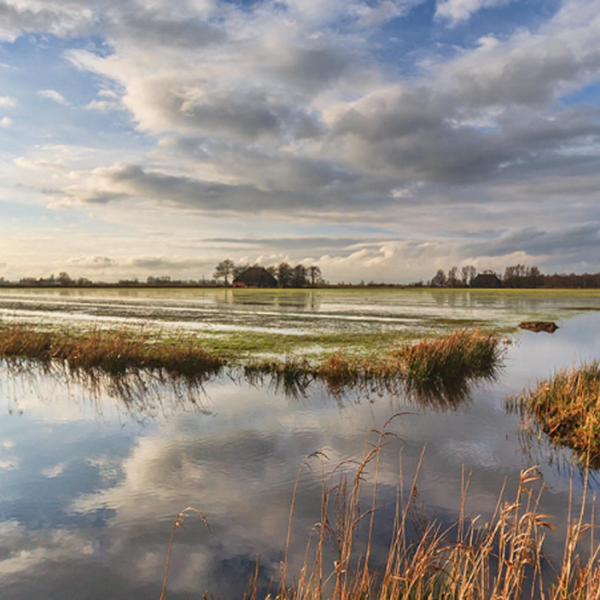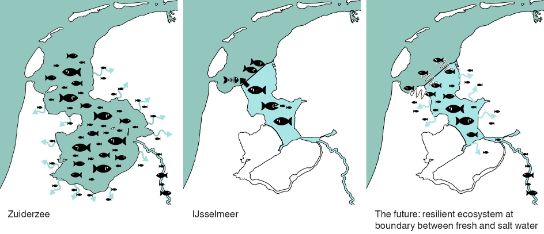Wieringerhoek exploratory study
Resilient ecosystem between the IJsselmeer and Wadden Sea

Before the Afsluitdijk was built, the area between the freshwater IJsselmeer and saltwater Wadden Sea was an open delta. The Wieringerhoek project is an exploratory study that aims to reinstate the area’s former delta character by creating natural transitions from wet to dry and from salt water to fresh water.
Under assignment to Rijkswaterstaat, Witteveen+Bos and Wing explored and developed various alternatives for contributing to an adaptive ecosystem and providing future opportunities for the economy, recreation, and fresh water provision.
The Ijsselmeer and Wadden Sea are important to many parties, so a plan supported by the region was of vital importance. In a series of design sessions, we worked together with various local parties to create and develop ideas. We also identified conflicting interests.
The project, begun in 2019, resulted in a preferred alternative that will contribute to a resilient ecosystem that sustainably maintains the various functions the IJsselmeer Region and Wadden Sea fulfil for society.
With the preferred alternative as its starting point, Witteveen+Bos worked on the further development of a fresh-to-salt water transition at Den Oever. To help create a climate buffer, work was also done in Andijk to create natural land-to-water transitions that combine drinking water extraction.
The result was four alternatives that were extensively tested for effectiveness and side effects. This testing was completed in 2022 and identified the most promising measures and areas to be further developed once a preferred alternative has been selected.
Throughout this planning process, a core team of ecologists, hydraulic engineers and landscape architects were at the helm. This assignment from Rijkswaterstaat forms part of the Programmatic Approach to Great Waters (PAGW).

More information?
